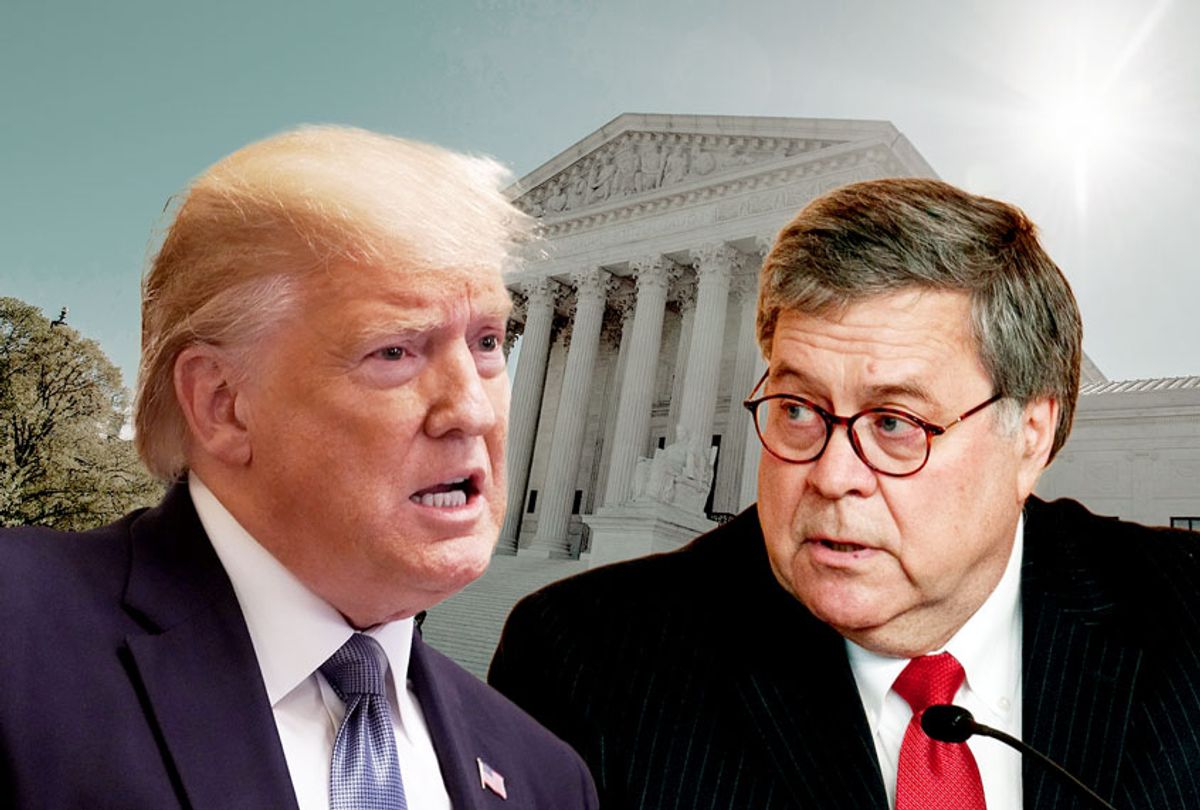A federal judge who dismissed President Trump’s lawsuit claiming that he is immune from any criminal investigations also picked apart the Justice Department’s official position that a sitting president cannot be indicted.
Judge Victor Marrero, who was appointed by President Bill Clinton, dismissed the suit seeking to block a New York prosecutor’s subpoena for Trump to turn over his tax returns. The suit argued that because DOJ memos say a sitting president cannot be indicted, he also cannot be criminally investigated.
Marrero threw out the suit, effectively requiring Trump to turn over his tax returns to New York prosecutors pending an appeal, and rejected the credence of the DOJ memos.
In his 75-page opinion, Marrero wrote that the theory holding that a president cannot be indicted "has gained a certain degree of axiomatic acceptance, and the DOJ Memos which propagate it have assumed substantial legal force as if their conclusion were inscribed on constitutional tablets so-etched by the Supreme Court.” His view, however, was different: “The Court considers such popular currency for the categorical concept and its legal support as not warranted.”
Trump has appealed Marrero’s decision regarding the tax returns. The president filed the lawsuit after Manhattan District Attorney Cyrus Vance issued the subpoena for his tax returns as part of an investigation into whether the president and the Trump Organization violated state laws in their hush money payments to Stormy Daniels and Karen McDougal during the 2016 campaign.
Trump's lawyers cited the DOJ memos saying a sitting president cannot be indicted, which former special counsel Bob Mueller cited in his decision not to indict Trump, to present the far-reaching claim that a sitting president is therefore also immune from all criminal investigations.
The suit argued that since the DOJ guidelines say a president cannot be prosecuted in office, he also cannot be “investigated … or otherwise subjected to the criminal process.”
Marrero rejected that argument, calling it an “extraordinary claim.” Under this theory, Marrero wrote, not only would Trump be immune from investigation but so would suspected “misconduct of any other person, business affiliate, associate or relative who may have collaborated with the President in committing purportedly unlawful acts.”
“This Court finds aspects of such a doctrine repugnant to the nation’s governmental structure and constitutional values,” Marrero wrote.
But Marrero went further, rejecting the underlying argument that the DOJ cannot indict a sitting president.
The DOJ memos, he wrote, are based on an “an unqualified abstract doctrine asserting a generalized principle” and not “a real case presenting real facts.”
“Because the constitutional text and history on point are scant and inconclusive, the DOJ Memos construct a doctrinal foundation and structure to support a presidential immunity theory that substantially relies on suppositions, practicalities, and public policy, as well as conjurings of remote prospects and hyperbolic horrors about the consequences to the Presidency and the nation as a whole that would befall under any model of presidential immunity other than the categorical rule on which the DOJ Memos and the President’s claim ultimately rest,” he wrote.
In short, Marrero’s opinion makes clear that the DOJ guidelines are not as legally binding as they seemed when Mueller announced that they precluded him from indicting Trump.
"In fact, not every criminal proceeding to which a President may be subjected would raise the grim specters the DOJ memos portray as incapacitation of the president," Marrero wrote, also adding that Trump’s “categorical claim of presidential immunity” may not outweigh “the prospect of a number of powerful individuals going free and escaping punishment for serious crimes by virtue of the President asserting absolute immunity from criminal process.”



Shares